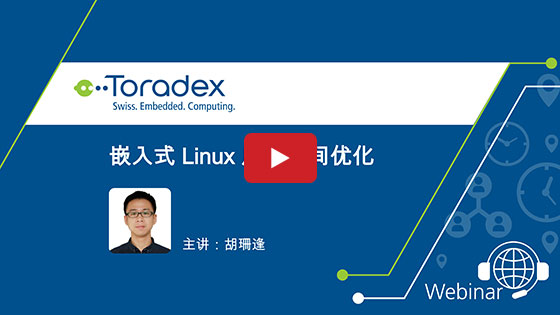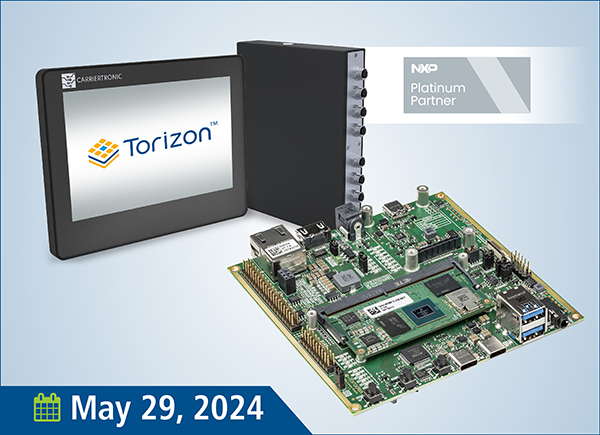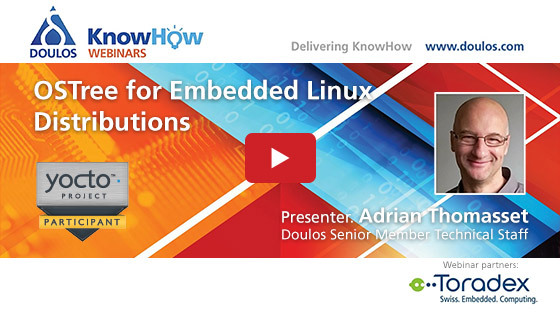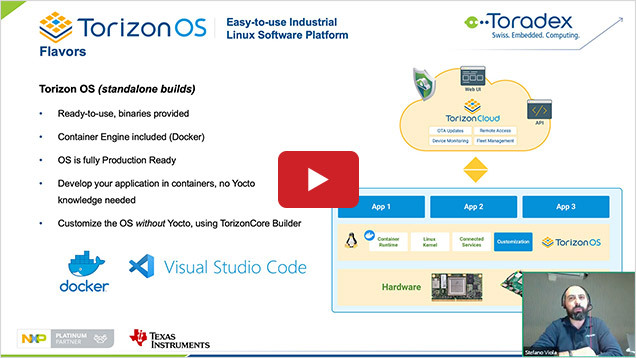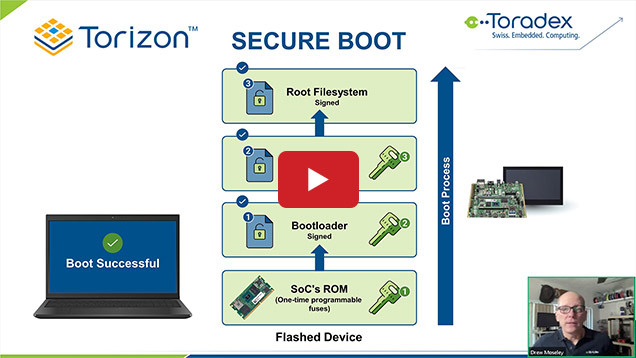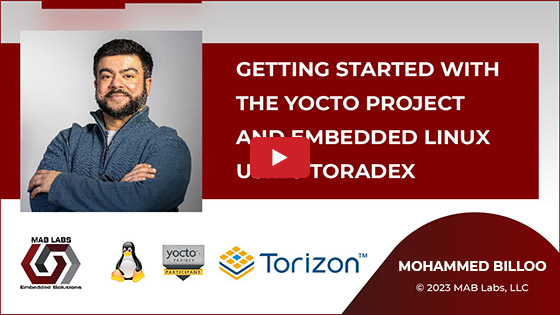Standard Linux distributions are designed for general purpose use. The commonly available software stack for Linux based operating systems often covers desktop or server use cases, and is therefore not optimized for one particular task. However, due to the modular design and open source nature of the Linux software stack, it is possible to optimize the system to excel in one particular task. After all, this is probably the main reason why Linux has become so successful in the embedded world. This webinar shows how to optimize a Linux based system for particular low boot times, by using a software stack built with OpenEmbedded.
During the course of this webinar video, we show you different boot optimization techniques that will help you achieve significantly faster startup time for a specific task. We show you how to optimize the whole software stack using our low-cost, NXP®/Freescale i.MX6-based Computer on Module - Colibri iMX6DL! The hands-on optimization will be carried out across the following three levels of the software stack:
- Boot loader (U-Boot)
- Kernel (Linux)
- User-Space (Init-Systems such as systemd and script-based initialization)
We also demonstrate tools that will help you to monitor the boot time during development. This will help you gauge the boot time improvements made during each step while we continue to incrementally work towards a lower boot time. We show utilities from the Yocto project which help to evaluate kernel and root file system sizes. Our goal during this webinar is to have a user space application running within 3 seconds.
